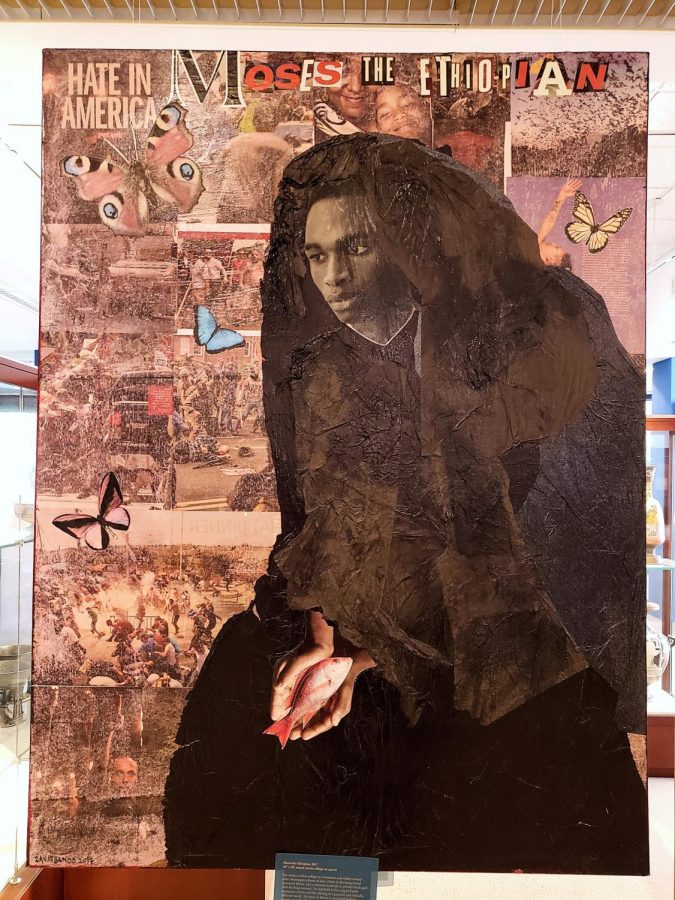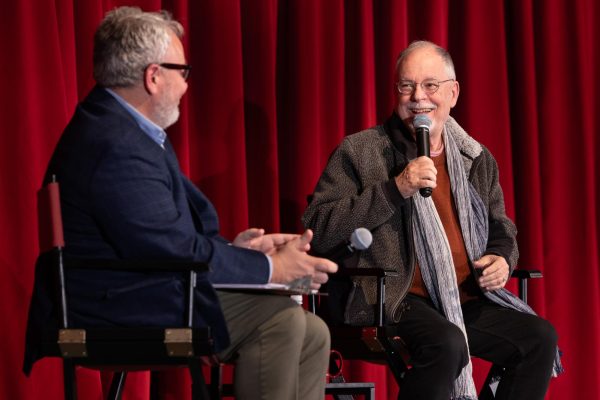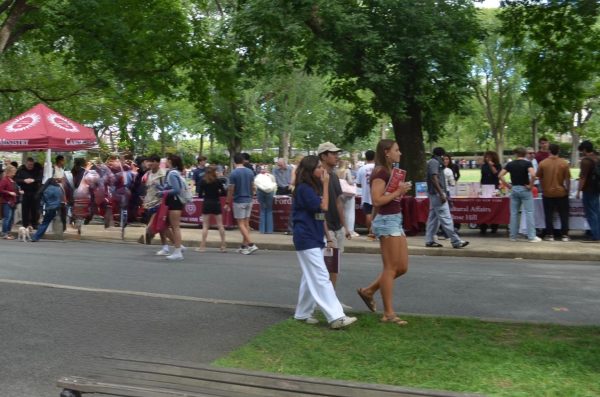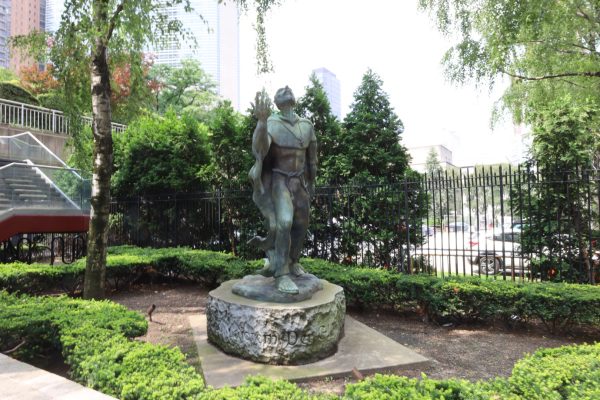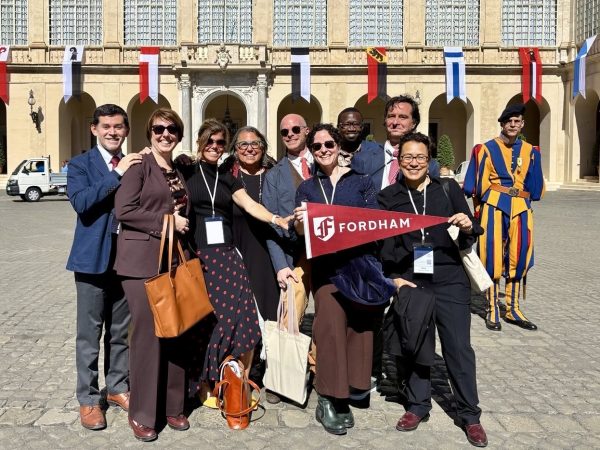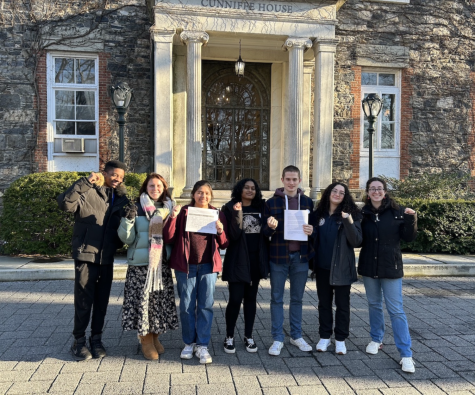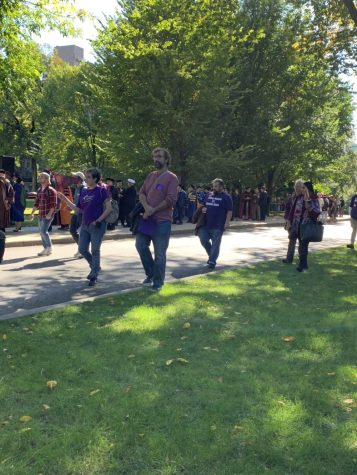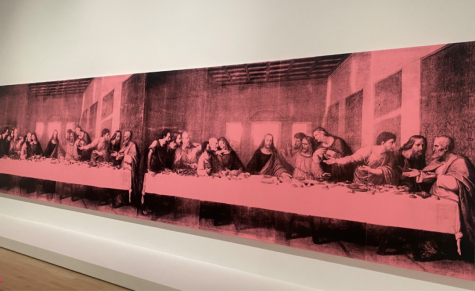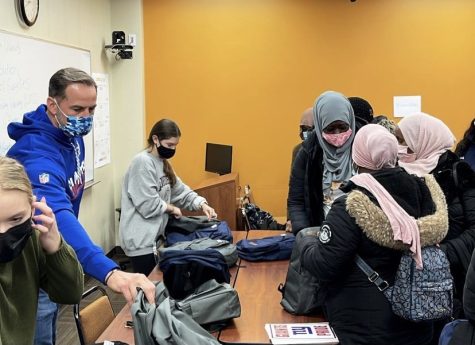Fordham Welcomes Joni Zacitsanos Exhibit in Museum of Greek, Etruscan and Roman Art
On Sept. 12, Fordham University opened, “Distant Relatives: Ancient Imagery of the Classical Pagan Past and the Modern Byzantine Icons of Joni Zavitsanos,” in its Museum of Greek, Etruscan and Roman Art in Walsh Library. Zavitsanos recently received the 2019 Nicholas J. Bouras Award for Extraordinary Archon Stewardship.
According to Zavitsanos, this collection of modern works was inspired by the early Christian iconography of Byzantine Empire (A.D. 330–1453). She said it is an alternate view of the religious figures and icons which were common in Byzantine art, as tall bodies with stark visages often engaged in prayer or preaching were the most common features of this ancient art style.
Zavitsanos said she sees the plight of the modern individual as equatable with the struggles of the early saints often depicted in Byzantine religious art.
“We are all saints,” she said. “The images I create are mostly social commentaries reflecting the sorrows of this world, and maybe an answer in the heavenly, or the divine.”
The exhibit features one painting, entitled “Jonah Repents, Rachel Weeps, and the Memory of the Rose Lives On.” This work features images of Antwon Rose, a young victim of police violence, as well as the biblical figure Rachel, who mourned for the death of her children in the Old Testament book of Jeremiah. Zavitsanos said that by juxtaposing these two figures, she aimed to direct the same sympathy to Antwon Rose that is expected for Rachel.
Other young victims of violence are featured in her exhibit. The young girl from Pakistan who was almost assassinated for her efforts to educate local women in her native land is the main feature of her namesake work, “Malala,” which is hung centrally in the museum library.
“You’ll see many things you see on the news or hear about on the radio, and I am trying to interject those into the paintings, and not to make a political statement, necessarily, but more so just for awareness, to bring about awareness,” Zavitsanos said.
Zavitsanos said she spreads a message of reverence for modern-day icons like Malala Yousafzai, and hopes her art will convey to people the same sentiment as religious icons, which evoke piety and contemplation in worshippers and believers around the nation.
She said her own life experience inspired these works of art and the ancient styles they feature.
Zavitsanos’s father, Diamantis J. Cassis, was an iconographer of Byzantine works and early Christian art. She said she spent many hours with her father in the presence of the austere images of Byzantine religious art, and from this childhood experience, she draws the theme of her current work.
Zavitsanos said she chose Fordham’s Museum of Greek, Etruscan and Roman Art as home to her work as it contains works from the same region as the Byzantine iconography, which inspired her art and employed her father.
In 2020, Joni Zavitsanos’s upcoming exhibit of a larger collection of her works is to be housed in her native Texas, at Houston’s MATCH Gallery as a solo exhibition titled “My Father’s Daughter.”



































































































































































































